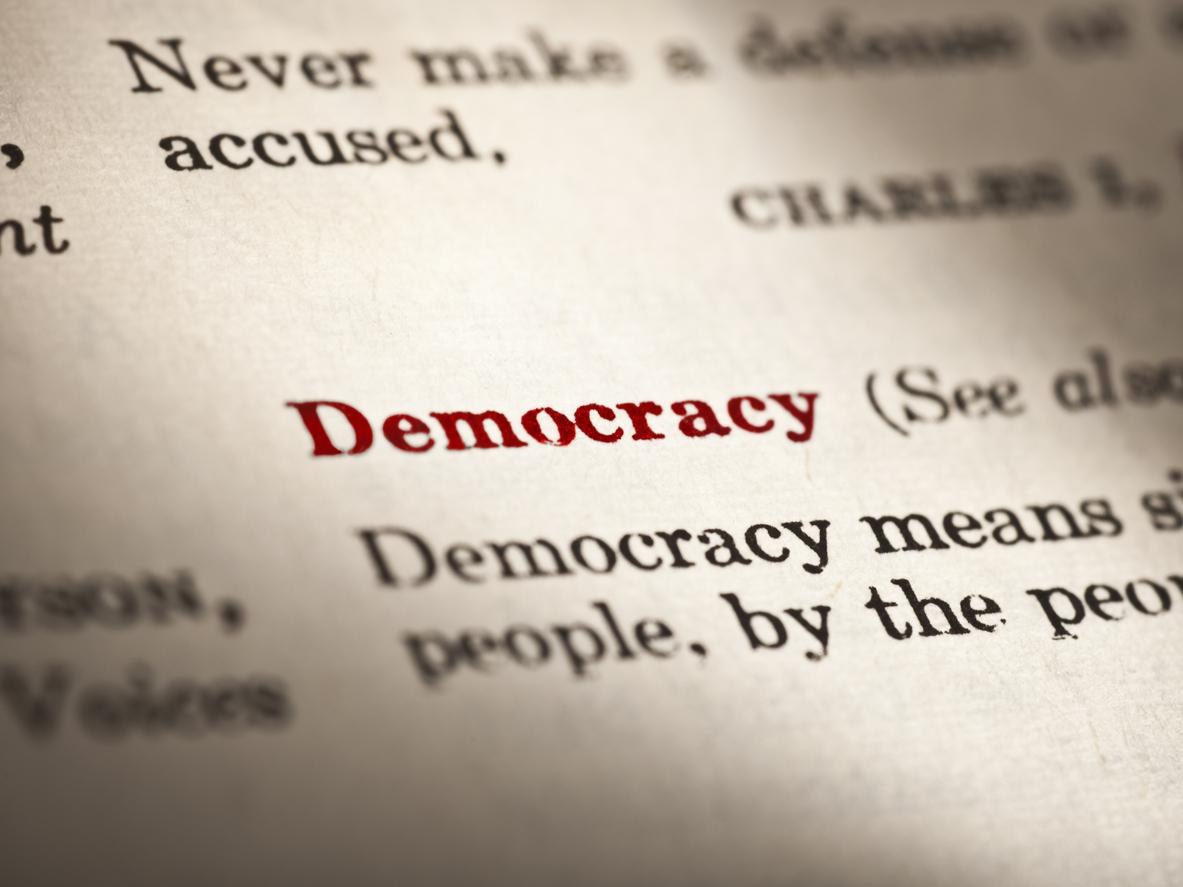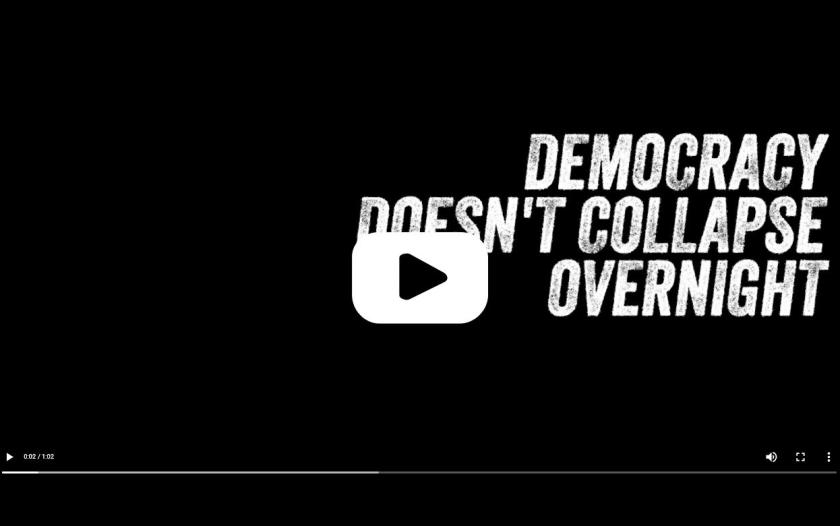Can Educating Citizens about Democratic Backsliding Increase Engagement with Democracy?
A field experiment conducted by a Stanford political psychologist tests ways to increase awareness of threats to democracy

In 2021, Stanford’s Politics and Social Change Lab (PaSCL) joined forces with Civic Health Project and scholars at Cornell, MIT, Northwestern, Columbia, and the University of Pennsylvania to launch the The Strengthening Democracy Challenge, a massive online experiment of 32,000 Americans designed to advance understanding of what interventions reduce anti-democratic attitudes, support for partisan violence, and partisan animosity.
The results of this ‘mega-study’ identified a set of 25 strategies that effectively countered anti-democratic attitudes and reduced partisan animosity. With Stage 2 funding from Stanford Impact Labs, PaCSL went on to sponsor a Field Test Grant competition for research teams working in partnership with civic organizations to put some of the most effective interventions to test in real-world settings. The four hybrid teams that won grants have since completed their field tests.
One project, led by Stanford postdoctoral fellow Katherine Clayton, sought to expose people to early warning signs of democratic collapse.
“Research shows that citizens in democracies often struggle to recognize when their own democracy is under threat, as leaders will try to justify undemocratic actions as necessary to protect democracy or reduce corruption,” notes Clayton. “Our study is designed to investigate whether educating citizens about the early warning signs of democratic backsliding can increase their recognition of these threats and/or their willingness to take action to strengthen democracy.”
The Stanford researcher partnered with Debra Lavoy and Nancy Noble of Reality Team, a nonprofit that seeks to fight disinformation by running short ads on social media platforms related to issues like climate change, election integrity, and COVID-19, and Ian Simmons and Simon Thompson of Democracy House, a nonprofit whose mission is to engage the next generation of young leaders with democracy.
Clayton explains the project as “a series of experiments including a nationally representative survey, a field experiment in a civic leadership program, and a field experiment on social media which featured short videos of footage of democratic collapse.” The videos (see below for one example) include news clips about politically motivated misconduct, chaos, and violence so as to expose viewers to early warning signs, given what the team defines as the "incremental and stealthy nature" of democratic backsliding.
The result? “We found that informing people about how democratic backsliding can unfold generally increases awareness of threats to democracy and fosters engagement with democracy.”
However, she notes the team also encountered challenges with capturing users’ attention on social media platforms in particular (as compared to the survey or civic leadership program settings).“ These findings have important implications for designing real-world interventions that can help engage the public with democracy,” notes Clayton.
“Our research offers a first step in demonstrating that informing people about how democratic backsliding unfolds increases awareness of threats to democracy, but much more research is needed to understand how to translate that awareness into real-world action.”

